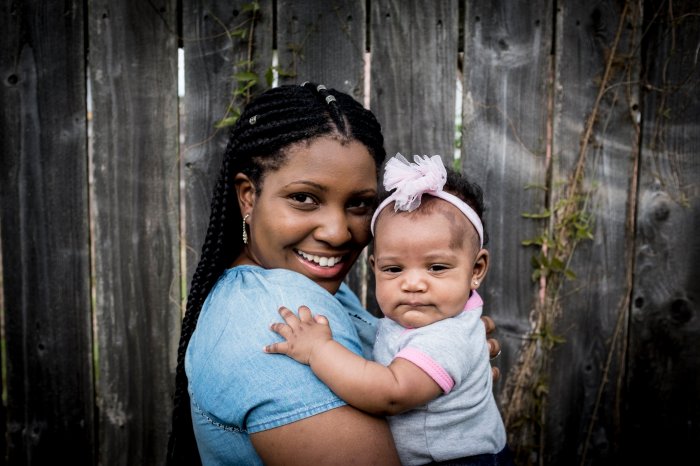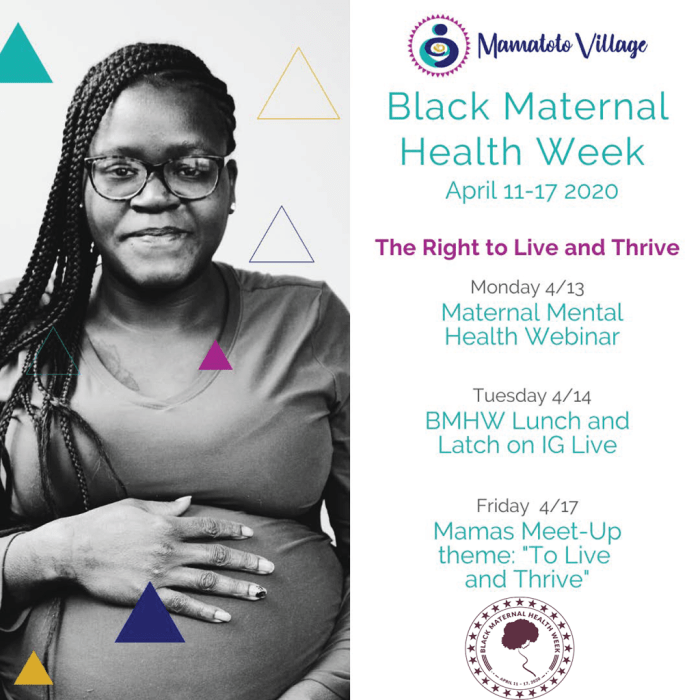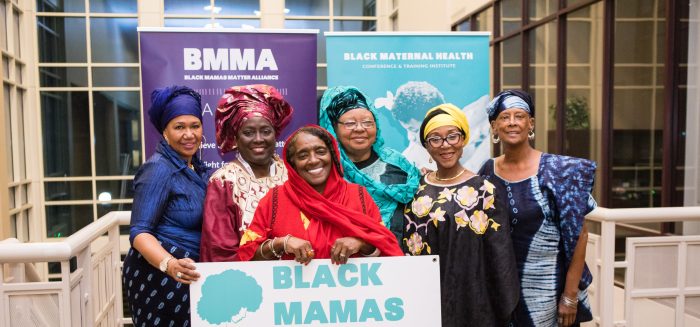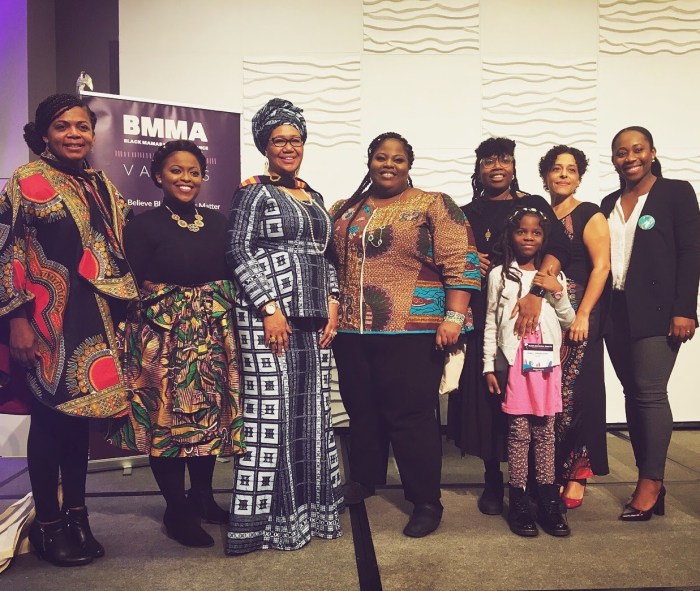Jada jones black mamas lives matter – Jada Jones’ unwavering advocacy for Black maternal health and empowerment takes center stage in this discourse, unveiling a narrative that is both compelling and transformative. Her unwavering commitment to improving the lives of Black mothers has ignited a movement that reverberates throughout communities and healthcare systems alike.
Jones’ initiatives, campaigns, and collaborations have been instrumental in addressing the stark disparities in maternal health outcomes that disproportionately affect Black women. Through her co-founding of the Black Mamas Matter Alliance, she has amplified the voices of Black mothers, advocating for reproductive justice, policy change, and comprehensive support systems.
Jada Jones’ Advocacy for Black Maternal Health
Jada Jones has been a staunch advocate for improving the lives of Black mothers. Her activism and advocacy work have focused on addressing maternal health disparities and ensuring equitable access to quality healthcare for Black women.
Jones’ advocacy efforts have taken various forms, including initiatives, campaigns, and collaborations. One notable initiative is the “Black Mamas Matter Alliance,” which she co-founded in 2018. The alliance aims to reduce maternal mortality and morbidity rates among Black women by providing support, education, and advocacy.
Initiatives and Campaigns
- Jones launched the “Count Her In” campaign in 2019, which aimed to raise awareness about the high rates of maternal mortality among Black women and advocate for policy changes to address the issue.
- She also initiated the “Momnibus” project, a collaboration with researchers and policymakers to develop comprehensive legislation addressing maternal health disparities.
- Additionally, Jones has partnered with organizations such as the National Black Women’s Health Center and the American College of Obstetricians and Gynecologists to promote maternal health equity.
Black Mamas Matter Alliance: Jada Jones Black Mamas Lives Matter

The Black Mamas Matter Alliance (BMMA) is a national network of Black women-led organizations and individuals working to improve the health and well-being of Black mothers and families. Co-founded by Jada Jones, BMMA’s mission is to build power for Black mamas through organizing, advocacy, and policy change.
Reproductive Justice
BMMA advocates for reproductive justice, which includes the right to access comprehensive reproductive health care, including abortion and contraception, without discrimination or coercion. The organization works to ensure that Black women have the information, resources, and support they need to make informed decisions about their bodies and their reproductive health.
Policy Advocacy
BMMA advocates for policy changes that address the root causes of maternal health disparities. The organization works to increase funding for maternal health programs, improve access to affordable housing and childcare, and address the social and economic factors that contribute to poor health outcomes for Black mothers.
Support for Black Mothers
BMMA provides support to Black mothers through a variety of programs and initiatives. The organization offers doula training and support, provides financial assistance to mothers in need, and connects mothers with resources and services in their communities.
Intersectional Approach to Maternal Health
Addressing Black maternal health effectively requires an intersectional approach that considers the complex interplay of factors that contribute to disparities in maternal outcomes. This approach recognizes that race is not the sole determinant of health outcomes and that other factors, such as socioeconomic status and access to healthcare, play significant roles.
Socioeconomic Status
Socioeconomic status is a major determinant of health outcomes, including maternal health. Black women are more likely to live in poverty and experience financial hardship, which can limit their access to adequate nutrition, housing, and healthcare. These factors can contribute to increased risks of preterm birth, low birth weight, and other adverse maternal outcomes.
Access to Healthcare, Jada jones black mamas lives matter
Access to quality healthcare is essential for ensuring good maternal health outcomes. However, Black women face systemic barriers to healthcare access, including lack of insurance, discrimination, and bias in healthcare settings. These barriers can result in delayed or inadequate care, which can have negative consequences for maternal health.
Community-Based Solutions for Black Maternal Health

Community-based solutions play a crucial role in addressing the health disparities faced by Black mothers. These solutions empower communities to take ownership of their health and well-being, fostering a sense of agency and promoting sustainable change.
Successful programs and initiatives have demonstrated the effectiveness of community-based approaches. These initiatives often involve partnerships between community organizations, healthcare providers, and policymakers, ensuring a holistic and collaborative approach to improving maternal health outcomes.
Prenatal Care and Support
Community-based programs that provide prenatal care and support have shown positive results in reducing preterm birth and low birth weight among Black mothers. These programs often offer culturally sensitive services, such as doula support, breastfeeding education, and nutrition counseling, which address the specific needs of Black women.
- The Black Mamas Matter Alliance (BMMA) provides a comprehensive range of prenatal care services, including doula support, childbirth education, and postpartum care, to Black women in New York City.
- The National Birth Equity Collaborative (NBEC) offers a toolkit for community organizations to develop and implement prenatal care programs tailored to the needs of Black mothers.
Postpartum Care and Support
Postpartum care is crucial for the health and well-being of Black mothers. Community-based programs that provide postpartum care and support can help reduce the risk of postpartum depression, improve breastfeeding rates, and promote healthy infant development.
- The Postpartum Support International (PSI) offers a directory of postpartum support groups and resources for Black mothers, providing emotional and practical support during the postpartum period.
- The National Black Doulas Association (NBDA) provides training and certification for doulas who specialize in providing postpartum care to Black women.
Community Education and Advocacy
Community education and advocacy are essential for raising awareness about the disparities in Black maternal health and mobilizing communities to demand change. Community-based organizations play a vital role in educating the public, advocating for policy changes, and empowering Black mothers to make informed decisions about their health.
- The Center for Black Women’s Health (CBWH) conducts research, provides education, and advocates for policies that improve the health of Black women, including maternal health.
- The National Black Women’s Health Project (NBWHP) offers a range of educational resources and advocacy campaigns focused on improving the health of Black women, including maternal health.
Data and Research on Black Maternal Health
Disparities in maternal health outcomes for Black women are well-documented, with research consistently showing higher rates of maternal mortality, morbidity, and adverse birth outcomes compared to other racial and ethnic groups. These disparities persist even after controlling for factors such as socioeconomic status, education, and access to care.
One of the most comprehensive studies on Black maternal health was conducted by the Centers for Disease Control and Prevention (CDC) in 2019. The study found that Black women were three times more likely to die from pregnancy-related causes than white women, and they were also more likely to experience severe maternal morbidity, such as hemorrhage, infection, and preeclampsia.
Data Collection and Research Needs
Continued data collection and research are essential to inform policy and interventions aimed at reducing Black maternal mortality and morbidity. This research should focus on understanding the root causes of disparities, identifying effective interventions, and monitoring progress over time.
- Improved data collection:Current data collection systems often lack the granularity needed to fully understand the factors contributing to Black maternal health disparities. More detailed data on factors such as race, ethnicity, socioeconomic status, and access to care is needed to identify the most vulnerable populations and develop targeted interventions.
- Research on social determinants of health:Social determinants of health, such as poverty, housing instability, and food insecurity, have a significant impact on maternal health outcomes. Research is needed to better understand the role of these factors in Black maternal health disparities and to develop interventions that address these underlying causes.
- Evaluation of interventions:It is important to evaluate the effectiveness of interventions aimed at reducing Black maternal mortality and morbidity. This research should include both qualitative and quantitative methods to assess the impact of interventions on maternal health outcomes and to identify areas for improvement.
Policy Recommendations to Address Black Maternal Health

Addressing the alarming disparities in Black maternal health requires comprehensive policy interventions that target the root causes of these disparities. These recommendations aim to improve access to healthcare, address social determinants of health, and eliminate systemic barriers that contribute to poor maternal outcomes among Black women.
Expanding Access to Healthcare
- Extend Medicaid coverage for pregnant women and new mothers for 12 months postpartum.
- Increase funding for community health centers and federally qualified health centers that provide affordable and accessible care to underserved communities.
- Implement universal healthcare coverage to ensure all women have access to comprehensive prenatal, delivery, and postpartum care.
Addressing Social Determinants of Health
- Provide paid family leave to allow new mothers to recover from childbirth and bond with their babies without financial hardship.
- Invest in affordable housing, healthy food options, and safe neighborhoods to improve the overall health and well-being of Black families.
- Address systemic racism and discrimination in housing, education, employment, and criminal justice systems that contribute to health disparities.
Eliminating Systemic Barriers
- Implement implicit bias training for healthcare providers to reduce unconscious biases that may affect the quality of care provided to Black women.
- Increase representation of Black women in healthcare professions to improve cultural sensitivity and understanding of the unique needs of Black patients.
- Establish a national maternal mortality review committee to investigate and address preventable maternal deaths.
Challenges and Barriers to Black Maternal Health

Black mothers face numerous challenges and barriers in accessing quality healthcare, contributing to the alarming disparities in maternal health outcomes. These challenges are deeply rooted in systemic racism, discrimination, and lack of cultural sensitivity within the healthcare system.
Systemic Racism and Discrimination
Systemic racism manifests in various forms within healthcare, including implicit bias, racial profiling, and unequal access to resources. Black mothers are often subjected to negative stereotypes and assumptions, leading to delayed or inadequate care. Discrimination in healthcare settings can range from subtle microaggressions to overt denial of services.
Lack of Cultural Sensitivity
The healthcare system often lacks cultural sensitivity towards Black mothers. Many providers may not be adequately trained to understand the unique cultural beliefs, values, and experiences of Black women. This can result in miscommunication, mistrust, and missed opportunities for culturally appropriate care.
Access to Healthcare, Jada jones black mamas lives matter
Black mothers face significant barriers in accessing healthcare, including lack of insurance, transportation issues, and limited availability of providers in their communities. These barriers contribute to delayed prenatal care, inadequate postpartum follow-up, and reduced access to essential health services.
Role of Education and Empowerment in Black Maternal Health

Education and empowerment are crucial for Black mothers to improve their health outcomes. By equipping Black mothers with knowledge, resources, and support, they can make informed decisions about their health and advocate for their rights.
Various programs and initiatives aim to educate and empower Black mothers about their health and rights. These include:
Community-Based Doula Programs
- Provide continuous support and education to Black mothers throughout pregnancy, labor, and postpartum.
- Empower mothers by advocating for their needs and providing information about their health.
Prenatal and Postpartum Education Classes
- Offer information on pregnancy, childbirth, and postpartum care, tailored to the specific needs of Black mothers.
- Provide a safe and supportive environment for mothers to ask questions and learn from healthcare professionals.
Maternal Health Advocacy Organizations
- Educate Black mothers about their rights and empower them to advocate for themselves and their families.
- Provide resources and support to mothers facing challenges in accessing healthcare or navigating the healthcare system.
Frequently Asked Questions
What is the significance of an intersectional approach in addressing Black maternal health?
An intersectional approach recognizes the interconnectedness of race, socioeconomic status, and other factors that contribute to health disparities. It acknowledges that Black mothers face unique challenges due to the叠加of these factors, requiring tailored interventions and policies.
How does the Black Mamas Matter Alliance contribute to improving Black maternal health?
The Black Mamas Matter Alliance advocates for policy change, provides support to Black mothers, and conducts research to highlight the unique challenges they face. Through community-based initiatives and partnerships, the alliance works to improve access to healthcare, reduce implicit bias, and empower Black mothers to make informed decisions about their health.